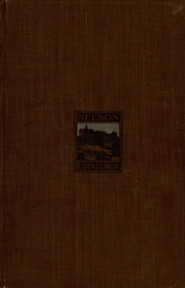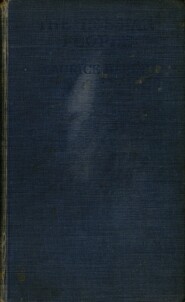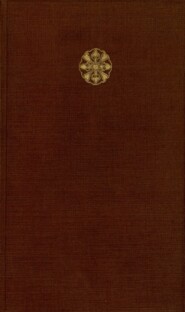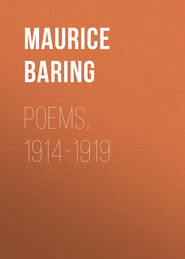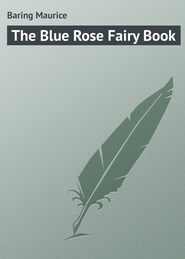По всем вопросам обращайтесь на: info@litportal.ru
(©) 2003-2024.
✖
Overlooked
Настройки чтения
Размер шрифта
Высота строк
Поля
Anikin remained pensive.
"What I find still more complicated," he said, "is when there is a right reason for doing a thing, but one can't use it because the right reason is not the real reason; there is another one as well."
"For doing a duty," said Arkright. "Is that what you mean?"
"There are circumstances," said Anikin, "in which one could point to duty as a motive, but in which the duty happens to be the same as one's inclinations, and if one took a certain course it would not be because of the duty but because of the inclinations. So one can't any more talk or think of duty."
"Then," said Arkright, a little impatiently, "we can cancel the word duty altogether. It is simply a case of choosing between duty and inclination."
"No," said Anikin, "it is sometimes a case of choosing between a pleasure which is not contrary to duty (et qui pourrait même avoir l'excuse du devoir)" he lapsed into French, which was his habit when he found it difficult to express himself in English, "and an obligation which is contrary both to duty and inclination."
"What is the difference between an obligation and a duty?" asked Arkright. He wished to pin the elusive Slav down to something definite.
"Isn't there in life often a conflict between them?" asked Anikin. "In practical life, I mean. You know Tennyson's lines:
"His honour rooted in dishonour stood
And faith unfaithful made him falsely true."
"Now I understand," thought Arkright, "he is going to pretend that he is in the position of Lancelot to Elaine, and plead a prior loyalty to a Guinevere that no longer counts."
"I think," he said, "in that case one cannot help remaining 'falsely true.'" That is, he thought, what he wants me to say.
"One cannot, that is to say, disregard the past," said Anikin.
"No, one can't," said Arkright, as if he had entirely accepted the Russian's complicated fiction.
He wanted, at the same time, to give him a hint that he was not quite so easily deceived as all that.
"Isn't it a curious thought," he said, "how often people invoke the engagements of a past which they have comfortably disregarded up to that moment when they no longer wish to face an obligation in the present, like a man who in order to avoid meeting a new debt suddenly points to an old debt as something sacred, which up till that moment he had completely disregarded, and indeed, forgotten?"
Anikin laughed.
"Why are you laughing?" asked Arkright.
"I am laughing at your intuition," said Anikin. "You novelists are terrible people."
"He knows I have seen through him," thought Arkright, "and he doesn't mind. He wanted me to see through him the whole time. He wants me to know that he knows I know, and he doesn't mind. I think that all this elaborate romance was perhaps only meant for me. He will choose some simpler means of breaking off his engagement with Miss Farrel than by pleading a past obligation. He is far subtler and deeper than I thought, subtler and deeper in his simplicity. I should not be surprised if he were to give her no explanation whatsoever."
Arkright was in a sense right. What Anikin had said to Arkright was meant for him and not for Miss Farrel. It was not a rehearsal of a possible explanation for her, but it was the testing of a possible justification of himself to himself. He had not thought out what he was going to say before he began to talk to Arkright. He had begun with fact and had involuntarily embroidered the fact with fiction. It was Wahrheit und Dichtung and the Dichtung had got the better of the Wahrheit. His passion for make-belief and self-analysis had carried him away, and he had said things which might easily have been true and had hinted at difficulties which might have been his, but which, in reality, were purely imaginary. When he saw that Arkright had divined the truth, he laughed at the novelist's acuteness, and had let him see frankly that he realized he had been found out and that he did not mind.
It was cynical, if you called that cynicism. Anikin would not have called it something else: the absence of cement, which a Russian writer had said was the cardinal feature of the Russian character. He did not mean to say or do anything to Kathleen that could possibly seem slighting. He was far too gentle and far too easy-going, far too weak, if you will, to dream of doing anything of the kind. With her, infinite delicacy would be needed. He did not know whether he could break off his engagement at all, so great was his horror of ruptures, of cutting Gordian-knots. This knot, in any case, could not be cut. It must be patiently unravelled if it was to be untied at all.
"I think," said Arkright, "that all these cases are simple to reason about, but difficult to act on." Anikin was once more amazed at the novelist's perception. He laughed again, the same puzzling, quizzical Slav laugh.
"You Russians," said Arkright, "find all these complicated questions of conflicting duties, divided conscience and clashing obligations, much easier than we do."
"Why?" asked Anikin.
"Because you have a simple directness in dealing with subtle questions of this kind which is so complete and so transparent that it strikes us Westerners as being sometimes almost cynical."
"Cynical?" said Anikin. "I assure you I was not being cynical."
He said this smiling so naturally and frankly that for a moment Arkright was puzzled. And Anikin had been quite honest in saying this. He could not have felt less cynical about the whole matter; at the same time he had not been able to help taking momentary enjoyment in Arkright's acute diagnosis of the case when it was put to him, and at his swift deciphering of the hieroglyphics and his skilful diagnosis, and he had not been able to help conveying the impression that he was taking a light-hearted view of the matter, when, in reality, he was perplexed and distressed beyond measure; for he still had no idea of what he was to do, and the threads of gossamer seemed to bind him more tightly than ever.
6
Anikin strolled away from Arkright, and as he walked towards the Pavilion he met Mrs. Roseleigh. She saw at a glance that he had a confidence to unload, and she determined to take the situation in hand, to say what she wanted to say to him before he would have time to say anything to her. After he had heard what she had to say he would no longer want to make any more confidences, and if he did, she would know how to deal with them. They strolled along the Galeries till they reached a shady seat where they sat down.
"You are out early," he said, "I particularly wanted – "
"I particularly wanted to see you this morning," she said. "I wanted to talk to you about Lancelot Stukely. You know his story?"
"Some of it," said Anikin.
"He is going away."
"Because of Donna Laura?"
"Oh, it's not that."
"I thought he was devoted to her."
"He likes her. He thinks she's a very good sort. So she is, but she's a lot of other things too."
"He doesn't know that?"
"No, he doesn't know that."
"You know how he wanted to marry Kathleen Farrel?" she said, after a moment's pause.
"Yes," said Anikin, "I heard a little about it."
"It was impossible before."
"Because of money?"
"Yes, but now it is possible. He's been left money," she explained. "He's quite well off, he could marry at once."
"But if he doesn't want to?"
"He does want to, that is just it."
"Then why not? Because Miss Farrel does not like him?"
"Kathleen does like him really; at least she would like him really – only – "
"There has been a misunderstanding," said Mrs. Roseleigh. She put an anxious note into her voice, slightly lowering it, and pressing down as it were the soft pedal of sympathy and confidential intimacy.






